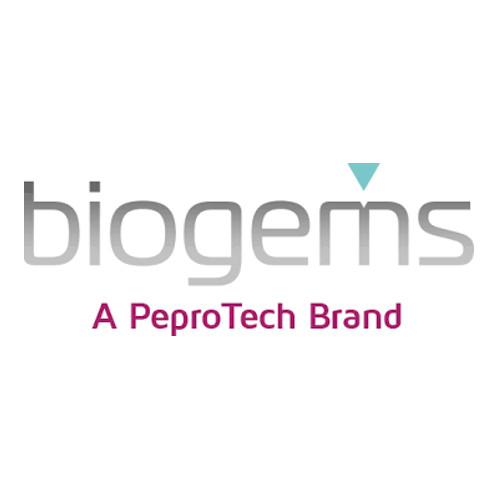IL-17A / PE / 4H1524
Product Details
| Description | The 4H1524 monoclonal antibody specifically binds to human IL-17A, a pro-inflammatory cytokine. It is produced by T helper 17 (Th17) cells, a unique subset of IL-23 dependent CD4+ T cells. Interleukin-17A is highly expressed in transplant rejection, asthma, psoriasis, and multiple sclerosis, and enhances the expression of ICAM-1 in human fibroblasts. The homodimer is expressed by activated peripheral CD4+ T lymphocytes. The Interleukin-17A binds to the IL-17 receptors (IL-17R) expressed by mast cells, monocytes and macrophages, fibroblasts, and endothelial and epithelial cells. | |
|---|---|---|
| Conjugate | PE | |
| Clone | 4H1524 | |
| Target Species | Human | |
| Applications | FC | |
| Supplier | BioGems | |
| Catalog # | Sign in to view product details, citations, and spectra | |
| Size | ||
| Price | ||
| Antigen | ||
| Host | ||
| Isotype |
About IL-17A
This gene is a member of the IL-17 receptor family which includes five members (IL-17RA-E) and the encoded protein is a proinflammatory cytokine produced by activated T cells. IL-17A-mediated downstream pathways induce the production of inflammatory molecules, chemokines, antimicrobial peptides, and remodeling proteins. The encoded protein elicits crucial impacts on host defense, cell trafficking, immune modulation, and tissue repair, with a key role in the induction of innate immune defenses. This cytokine stimulates non-hematopoietic cells and promotes chemokine production thereby attracting myeloid cells to inflammatory sites. This cytokine also regulates the activities of NF-kappaB and mitogen-activated protein kinases and can stimulate the expression of IL6 and cyclooxygenase-2 (PTGS2/COX-2), as well as enhance the production of nitric oxide (NO). IL-17A plays a pivotal role in various infectious diseases, inflammatory and autoimmune disorders, and cancer. High levels of this cytokine are associated with several chronic inflammatory diseases including rheumatoid arthritis, psoriasis and multiple sclerosis. The lung damage induced by the severe acute respiratory syndrome coronavirus 2 (SARS-CoV-2) is to a large extent, a result of the inflammatory response promoted by cytokines such as IL17A. [provided by RefSeq, Sep 2020]
This gene is a member of the IL-17 receptor family which includes five members (IL-17RA-E) and the encoded protein is a proinflammatory cytokine produced by activated T cells. IL-17A-mediated downstream pathways induce the production of inflammatory molecules, chemokines, antimicrobial peptides, and remodeling proteins. The encoded protein elicits crucial impacts on host defense, cell trafficking, immune modulation, and tissue repair, with a key role in the induction of innate immune defenses. This cytokine stimulates non-hematopoietic cells and promotes chemokine production thereby attracting myeloid cells to inflammatory sites. This cytokine also regulates the activities of NF-kappaB and mitogen-activated protein kinases and can stimulate the expression of IL6 and cyclooxygenase-2 (PTGS2/COX-2), as well as enhance the production of nitric oxide (NO). IL-17A plays a pivotal role in various infectious diseases, inflammatory and autoimmune disorders, and cancer. High levels of this cytokine are associated with several chronic inflammatory diseases including rheumatoid arthritis, psoriasis and multiple sclerosis. The lung damage induced by the severe acute respiratory syndrome coronavirus 2 (SARS-CoV-2) is to a large extent, a result of the inflammatory response promoted by cytokines such as IL17A. [provided by RefSeq, Sep 2020]
About PE
Phycoerythrin (PE, R-PE) is a red-emitting fluorescent protein-chromophore complex that can be excited the 488-nm blue, 532-nm green, or 561-nm yellow-green laser with increasing efficiency and captured with a 586/14 nm bandpass filter. PE has an excitation peak at 565 nm and an emission peak at 578 nm. PE is 240kD in size and has an extinction coefficient of ~2x10^6 which makes it one of the brightest fluorophores available and a potent donor upon which to build tandem fluorophores with longer Stoke's Shifts.
Phycoerythrin (PE, R-PE) is a red-emitting fluorescent protein-chromophore complex that can be excited the 488-nm blue, 532-nm green, or 561-nm yellow-green laser with increasing efficiency and captured with a 586/14 nm bandpass filter. PE has an excitation peak at 565 nm and an emission peak at 578 nm. PE is 240kD in size and has an extinction coefficient of ~2x10^6 which makes it one of the brightest fluorophores available and a potent donor upon which to build tandem fluorophores with longer Stoke's Shifts.
Experiment Design Tools
Panel Builders
Looking to design a Microscopy or Flow Cytometry experiment?
Validation References
Reviews & Ratings
| Reviews |
|---|
Looking for more options?
1387 IL-17A antibodies from over 32 suppliers available with over 74 conjugates.





